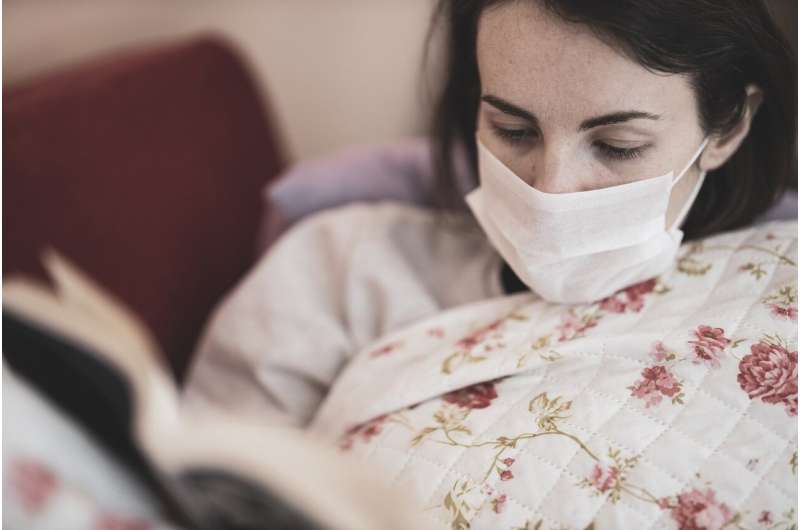Corticosteroids reduce risk of death by 20% in critically ill COVID-19 patients

An inexpensive, widely available class of drug called corticosteroids reduces the risk of death among critically ill COVID-19 patients by 20%, an analysis of seven trials published today in the Journal of the American Medical Association (JAMA) has found.
The World Health Organization (WHO) announced today it is updating its COVID-19 treatment guidance as a result of the findings.
The meta-analysis of seven international trials, co-ordinated by the WHO and with analyses by researchers from St. Michael's Hospital of Unity Health Toronto and the National Institute for Health Research (NIHR) at the University of Bristol, assessed mortality over a 28-day period after the start of treatment. The review found that treatment of the most severely ill patients—those in an ICU—with dexamethasone or hydrocortisone reduced mortality from 40% to 32%, a relative reduction of 20%.
Corticosteroids are a class of drug that lowers inflammation and reduces immune system activity.
The analysis is the result of collaboration between study teams, guideline developers and journals in response to the global pandemic. This meant results could be shared between research teams and with guideline developers before they were published.
"Even beyond the clear evidence of benefit for an inexpensive and widely available medication, the process of this work—pooling data across seven trials conducted over a period of only three months—highlights the willingness of researchers around the world to share data in a new research model that can bring reliable evidence rapidly to improve the care of patients with COVID-19," says Dr. John Marshall, senior scientist at the Li Ka Shing Knowledge Institute at St Michael's Hospital of Unity Health Toronto, and co-chair of the WHO Working Group on Clinical Characterization and Management.
The team behind the review includes the lead researchers from Brazil, Canada, China, France, Spain, the UK and the U.S.. The work is part of the WHO Rapid Evidence Appraisal for COVID-19 Therapies (REACT) initiative.
The researchers reviewed data from seven randomized control trials that had recruited 1,703 critically ill patients in total. These trials spanned five continents and included some of the countries hardest hit by COVID-19. They also included critically ill patients from the RECOVERY trial, which reported its findings in June 2020, and patients from the REMAP-CAP trial, the Canadian arm of which was led by Dr. John Marshall of St. Michael's Hospital. Unity Health Toronto's Arthur S. Slutsky, a scientist at St. Michael's Hospital, was also an author on the review paper.
Data from three of the seven trials in the meta-analysis, including the REMAP-CAP trial, were also published today in JAMA.
The mortality results were consistent across the seven trials with two types of corticosteroid, dexamethasone and hydrocortisone, giving similar effects. Too few patients were included in trials of methylprednisolone to allow its effect to be estimated with precision.
There was evidence of benefit from corticosteroids regardless of whether patients were receiving invasive mechanical ventilation at the time they started treatment. The benefit appeared greater among patients who were not so sick that they needed medicine to support their blood pressure, although the results were not definitive in this regard. The effect of corticosteroids appeared similar regardless of age, sex or how long patients had been ill.
"Our review is good news in the effort to treat COVID-19, and provides important new information that builds on the findings of the RECOVERY trial," says Jonathan Sterne, Professor of Medical Statistics and Epidemiology, University of Bristol and Deputy Director of the NIHR Bristol Biomedical Research Center (NIHR Bristol BRC). "Steroids are a cheap and readily available medication, and our analysis has confirmed that they are effective in reducing deaths amongst the people most severely affected by COVID-19. The results were consistent across the trials and show benefit regardless of age or sex."
Janet Diaz, lead, clinical response for COVID-19, WHO Emergency Program added: "WHO is committed to transforming science to policy in order to save lives. The COVID-19 pandemic has challenged us to work faster, but not to sacrifice quality and standards. The WHO Rapid Evidence Appraisal for COVID-19 Therapies (REACT) Working Group demonstrates how, in solidarity, science and public health can come together quickly for a common cause. The milestone of pooling of trial data before publication, using that data to inform clinical guidance development and then simultaneous publication of the evidence, evidence synthesis and guidance is unprecedented. I am privileged to have been part of this tremendous collaboration."
More information: undefined undefined et al. Association Between Administration of Systemic Corticosteroids and Mortality Among Critically Ill Patients With COVID-19, JAMA (2020). DOI: 10.1001/jama.2020.17023


















